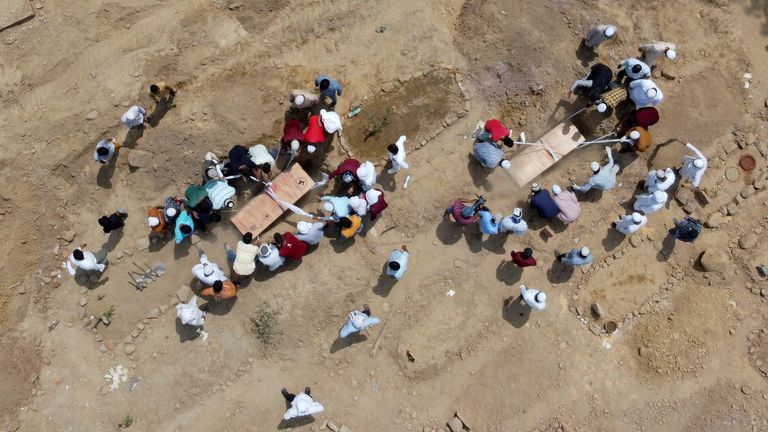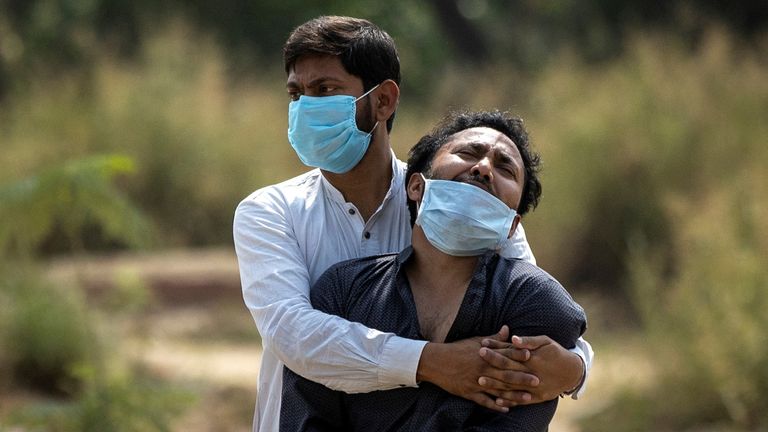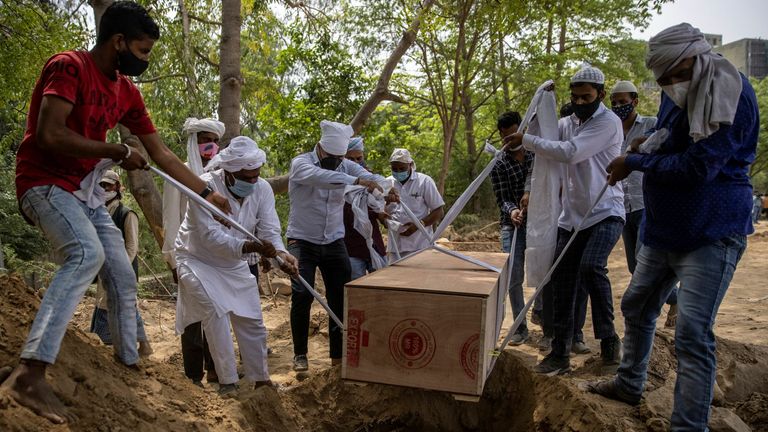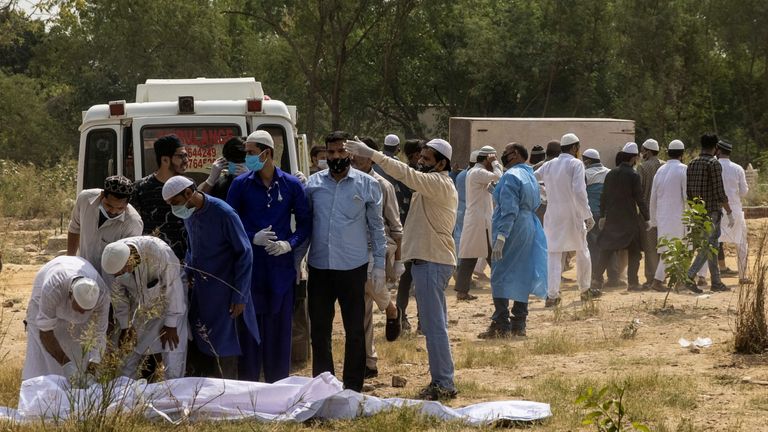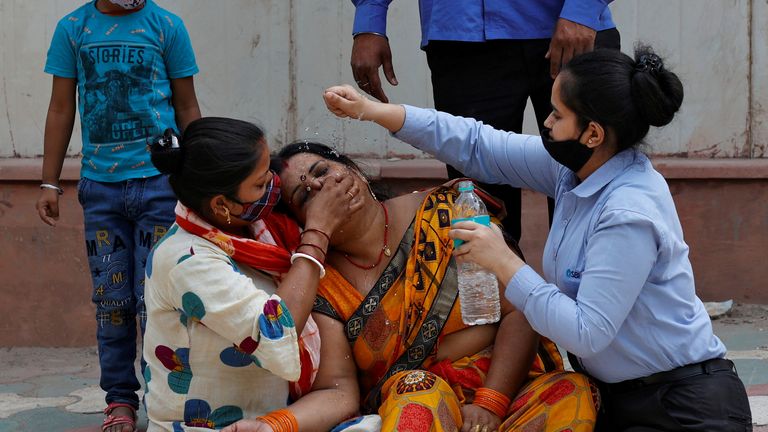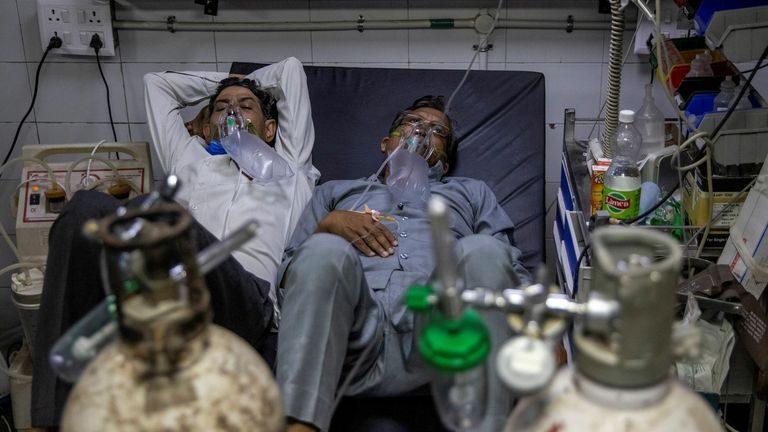COVID-19: Muslim graveyard in India turns bodies away, as coronavirus cases continue to surge
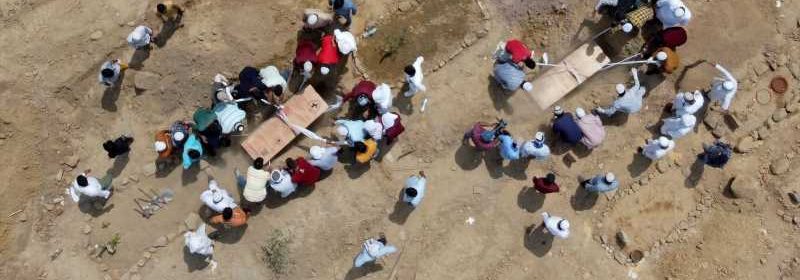
Delhi’s main Muslim graveyard is running out of space due to COVID-related deaths, as it surpassed Mumbai to become India’s worst-hit city.
On 15 April, a stream of ambulances arrived at the Jadid Qabristan cemetery on the outskirts of Delhi, where a patch of waste ground was turned into a COVID-19 burial ground last year.
The graves now run-up to the boundary wall, with little space for more.
Head gravedigger Mohammad Shameem said he has had to turn bodies away, with space and staff at a premium.
“Yesterday there were 19 bodies, but we can only handle 15,” he said.
Hospitals are also struggling to cope under the growing strain of increased cases.
Pappu Ali, 43, contracted coronavirus and his family visited several private hospitals in the city searching for a bed. He died after being admitted to a government hospital.
“There were not enough doctors, we couldn’t even find water,” his uncle Mehboob said.
According to official figures, Delhi recorded over 17,000 cases on 14 April, while Mumbai’s highest single-day peak was 11,163 on 4 April.
India reported more than 200,000 new cases in a single day on 15 April, with hospitals reporting a shortage of beds and oxygen.
The financial hub of Mumbai, India’s largest city, has gone into lockdown, but other cities remain open despite a spike in cases.
This week, millions of Hindu pilgrims gathered in the temple town of Haridwar, in Uttarakhand to celebrate Maha Kumbh Mela, dubbed as a superspreader event.
Following the event, 30 Hindu priests tested positive for coronavirus.
Among those infected with the virus, was the leader of the All India Akhada Parishad, Mahant Narendra Giri, who has been admitted to hospital.
On Thursday night, Uttarakhand reported 2,200 cases in 24 hours – its biggest single-day spike since the pandemic began in December 2019.
As cases around the country surge, India has found itself short of vaccines and is running out of the raw materials required to make new jabs.
The AstraZeneca-Oxford vaccine is locally made by the Serum Institute of India (SII) but production has been delayed by a raw material shortage.
SII’s chief executive appealed to US president Joe Biden to end the ban on raw material exports out of the US.
“Respected POTUS, if we are to truly unite in beating the virus, on behalf of the vaccine industry outside the US, I humble request you lift the embargo on raw material exports out of the US so that vaccine production can ramp up,” Adar Poonawalla said on Twitter.
Vaccination centres are rationing supplies, as the country inoculates over 45s having started its roll-out in mid-January with front line workers.
It has administered the most doses in the world, after America and China, but ranks much lower when looking at the per capita figure.
The government said the country had a stock of about 30 million doses, which will be enough for 10 days.
Despite initial reluctance to use non-Indian vaccines, the government has this week given emergency authorisation to Russia’s Sputnik V vaccine to be imported this month.
It has also urged Pfizer, Moderna and Johnson & Johnson to sell jabs to India.
A new Indian variant of the virus has been detected in the UK, with 74 cases detected by Public Health England.
India is not on the travel red list, so there is no requirement for hotel quarantine. Travellers returning from India are required to take two COVID-19 tests and quarantine at home for 10 days.
Boris Johnson is scheduled to visit the country at the end of April, his first major international trip since Britain’s exit from the European Union.
Asked if his planned trip to India would still go ahead later this month, a No 10 spokesman said it was still on.
But he said the programme “will be slightly shorter” and added: “As you would expect, safety is obviously important and is a priority for us on this trip, which is why we will make sure that all elements of the visit are COVID-secure.”
Source: Read Full Article

